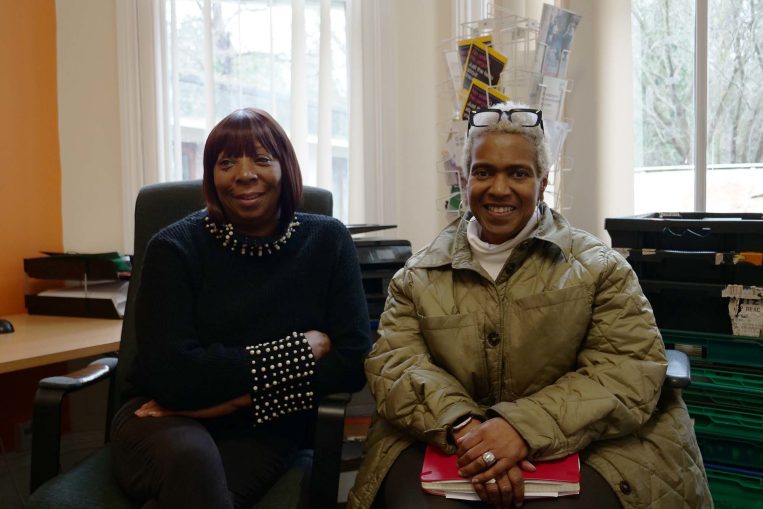
For International Women’s Day 2022 we spoke to Depaul UK’s service manager Janet Dyer, and Deborah Forbes, project lead at our women’s refuge, about the unique challenges facing women experiencing or at risk of homelessness, and the work they do to help support them.
Women experience homelessness differently. Pregnancy, domestic violence, and relationship breakdown force women into homelessness, making them vulnerable to further exploitation and abuse.
Janet said: “In my experience with 18–25 year-olds, young people become homeless because of overcrowding in the home. Parents ask them to leave, or parents are being physical with them and they have to leave. Then they become homeless and they start sofa surfing. That’s for both men and women.”
However, there are often additional factors specific for women, for instance pregnancy and childbirth: “having to leave because they’re pregnant, and their parents have told them to leave. Because family can’t accommodate them and the baby, or the family is upset because they’re in that situation to begin with.
“We also get women referred to us when they’ve been at home and they’ve had their baby and the relationship then breaks down. It could be that they were living at his accommodation at the time, or living in his family’s accommodation. Then she’s been left on her own and has to leave.”
Another key difference in the experience of women facing homelessness is that they are more likely to face sexual or physical violence.
Our 2018 report Danger Zones and Stepping Stones: Phase Two found: young women were more likely to lose stable accommodation at a younger age (under 18) than young men and young women were nearly four times as likely as young men to have experienced sexual abuse while in temporary living arrangements.
Additionally, research from homeless charity St Mungo’s revealed 33% of women that slept rough said domestic abuse contributed to them becoming homeless.
Pregnancy, domestic violence, and relationship breakdown force women into homelessness, all of which require tailored support to help them out of homelessness. At Depaul UK we support women specifically through our Mother and Baby services, women only complex needs support services, and domestic violence refuges. These different gender-based services allow us to deliver a holistic approach for the unique issues women face when experiencing homelessness.
There is also a need to be working with young people in preventative work. Deborah said: “We need to teach about healthy relationships. One of the things that used to upset me was you’d see sons of mothers who have been abused, becoming perpetrators and you think, when is that cycle going to stop? The only way forward is through education. What is a healthy relationship?”
Deborah and Janet rounded off their talk with us by providing some vital advice for all women.
Deborah said:
“It’s about being independent. I’ve got this thing about empowerment and moving forward. Having been an ex-service user myself, I felt that moving myself out of the situation was key. It’s about being independent.
“I say to all my ladies in the refuge, learn to drive! To me- that’s your magic carpet. It sounds like a silly thing to say, but I think they understand it’s about empowerment.”
Janet’s advice: “That’s what we’re here for, to try and empower individuals and to get them to work as a group. Because then they can support each other. I always say, we’re not here forever.
“We’re here for a limited time in your life. You’re going to move on. So, you need to be able to build your own little network. Feel safe and stay safe.”
Help us continue to empower women so they can lead an independent life.